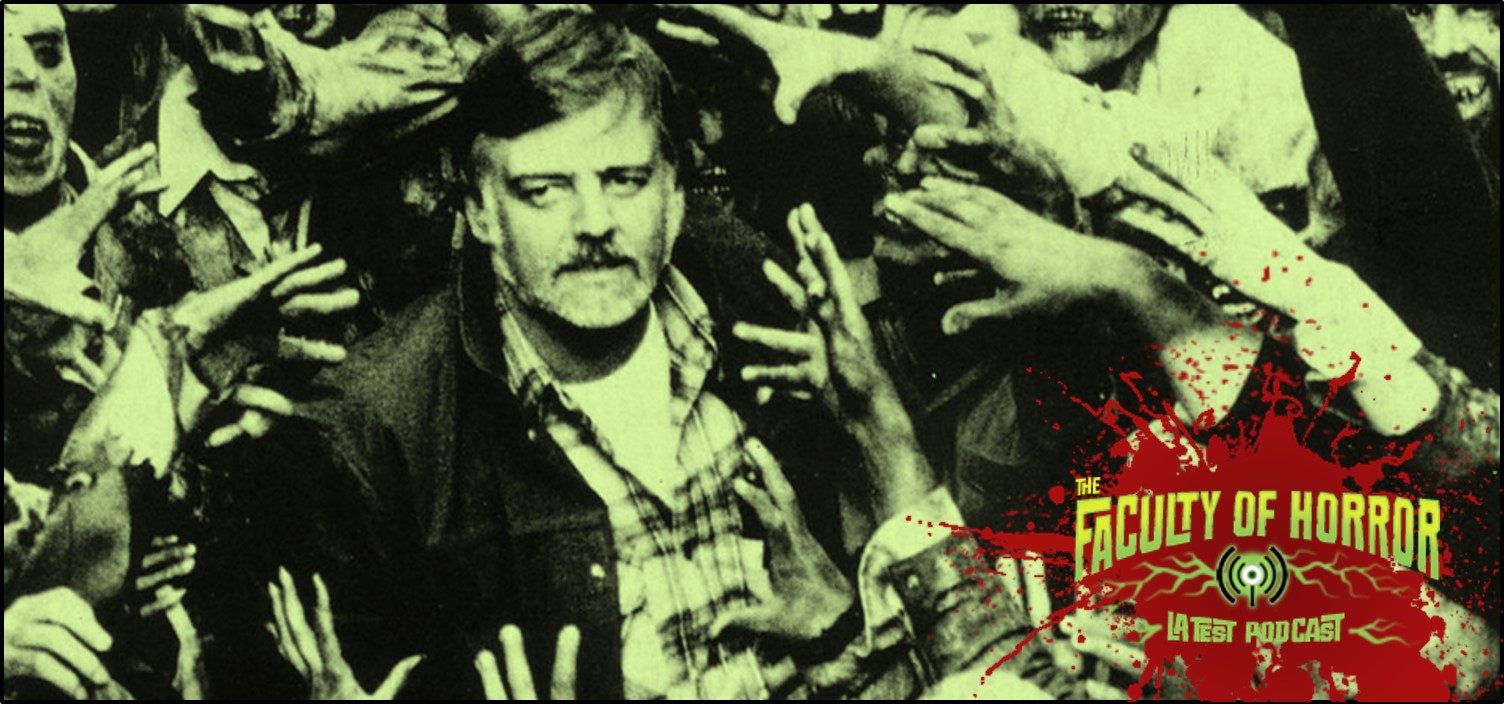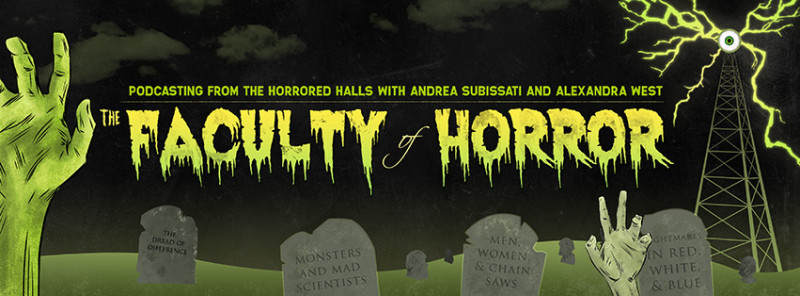 Alex and Andrea go back to the zombie’s origins with George A. Romero’s original Dead trilogy. From their social roots in Haiti to their ties to the New Hollywood movement, these films make delicious brain food.
Alex and Andrea go back to the zombie’s origins with George A. Romero’s original Dead trilogy. From their social roots in Haiti to their ties to the New Hollywood movement, these films make delicious brain food.
REQUIRED READING
Night of the Living Dead. Dir. George A. Romero, 1968.
Dawn of the Dead. Dir. George A. Romero, 1978.
Day of the Dead. Dir. George A. Romero, 1985.
EXTRA CREDIT
When There’s No More Room in Hell: The Sociology of the Living Dead. Andrea’s book on Romero’s early Dead films.
Passage of Darkness: the Ethnobiology of the Haitian Zombie by Wade Davis. An interdisciplinary study on Haitian political life and folklore.
Marxism and Literature by Raymond Williams. Marxist concepts applied to literature that provided the bedrock for Williams’ theory of cultural materialism that Andrea holds dear.
Shock Value: How a Few Eccentric Outsiders Gave Us Nightmares, Conquered Hollywood, and Invented Modern Horror by Jason Zinoman.
The Reduction of Urban Vulnerability: Revisiting 1950s American Suburbanization as Civil Defence. Kathleen Tobin’s article on the military’s involvement in the rise of the suburbs.
Podcast: Play in new window | Download

It was not discussed during the podcast but iZombie is based on the comic book by Chris Robinson from Vertigo comics. So the show really has that comic book feel. It doesn’t take itself too seriously and that some the best things about the show.
I agree with you Jay. I really enjoy the show and I think people who tune into it every week aren’t looking for the Walking Dead type show. It’s a different take on the zombie genre which I really appreciate.
Also, on a different note, your song choices at the end of the episodes are just spot on! I couldn’t help but chuckle at the “walking on broken glass” lyrics!
Another great podcast, thanks!!
Happy (belated) Halloween! Your look back at the “Dead” trilogy is quite the treat! Still have about a half hour to go, but I wanted to jot down a few thoughts about “Dawn of the Dead.”
I very much appreciate–and agree with–your comments on “Dawn” and its remake. I saw the original at a midnight show in the mid-’80s, and felt its reputation as a classic was well-deserved. Yet, 20-odd years later, I realized that I preferred the remake.
Much of it was exactly what you said. The original film is sloooooooow. (Granted, I watched the extended cut the second time around.) The satire was on-the-nose. I get it, George, consumers are like zombies; what else you got? And there’s a fucking pie fight. Nothing takes the horror out of a situation like a pie to an undead face.
The remake has less to say, perhaps, but I loved its intensity. The opening sequence builds from the intimate bedroom setting of the initial zombie attack, pulling out to a panorama of a chaotic landscape.
Also, zombie birth scene!
I am not nearly as knowledgeable or entertaining as the two of you, but I wanted to point you to an hour-long radio interview I conducted with the author of “Shock Value” back in 2011. https://will.illinois.edu/focus/program/focus110916b
Love the podcast! Thanks for your great insights and enthusiasm!
I am pretty disappointed with your dismissal of the Land of the Dead. Yes, it is the most polished of the films and it has the most commercial pacing–how dare Romero try to reach a larger audience 🙂
If you view the 4 films as an arc–Night, examines race (and the family), Dawn consumerism, Day militarism, Land deals with social class. Is there a horror film that examines the class structure any better? I’m serious, please let me know because I want to share it with my sociology students.
I think you can criticize Land as preposterous–why would those of the “higher” class be dining and shopping for jewelry while the zombies roam at the gates. But, if you understand the concept of peak oil (for instance) we may be seeing this exact scenario today. The global elite (the 1%) are basking in their wealth while the “end” could be at hand and certainly Trump shows that the rabble might band together (albeit in unenlightened way).
Yes, Land hit at a time of zombie saturation and lacks the DIY charm of the earlier films, but I contend that the social commentary in this film is quite strong. I guess if I considered you to be a pair of hacks (instead of the best horror podcasters) I wouldn’t be disappointed but I expect better of you based on your past performances.
I thought people stopped talking about “peak oil” after fracking.
I find it odd that in all your discussion of Haitian voodoo zombies you never note that Romero himself never used the word “zombie”. He called his creatures “ghouls”, referencing a separate kind of creature known for eating corpses. It was other people who started calling his films “zombie movies” because they depicted relatively mindless undead. Romero was explicitly inspired by Richard Matheson’s “I Am Legend” in which the undead are called “vampires”, even though they differ from the classic supernatural type of creature by that name, because the term “zombie” wasn’t terribly popular prior to Romero’s films.